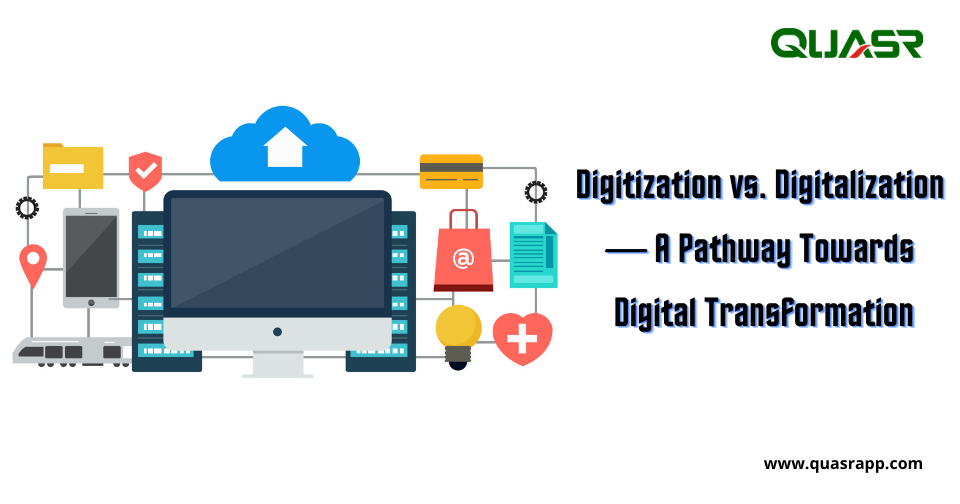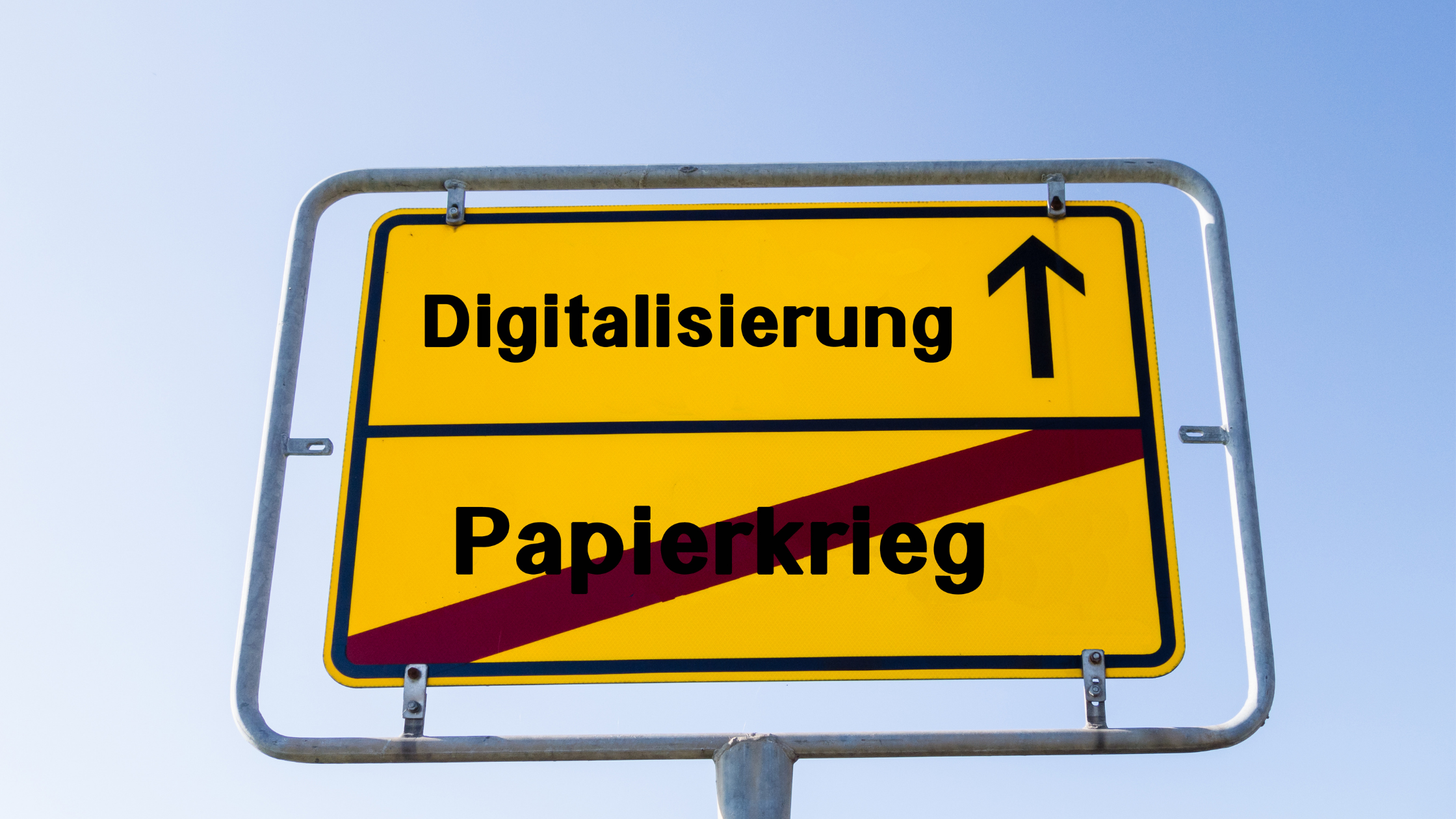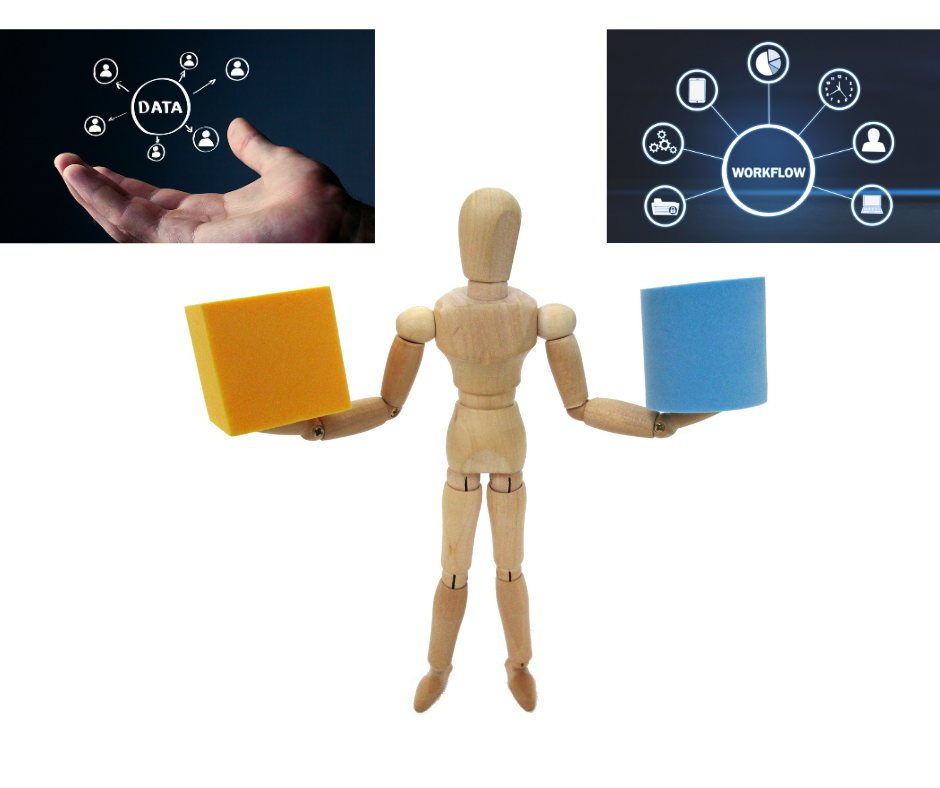
If we look back two and half decades, businesses have to provide input to their computing devices to convert data into a digital format.
Leaping for a few years, businesses gain capabilities to process data over digital technologies instead of the manual or offline system.
This digital evolution is called digitization to digitalization!
Confused?
Like their spellings—digitization and digitalization are insanely interlocked together that anyone can get confused between both terminologies. However, if we try to explain in one line
—‘digitization is information’ and ‘digitalization is a process.’
We know it still doesn’t give away why digitization and digitalization are different when they both deal with processing and interpreting information?
So, let’s dig deeper and understand what lies in the roots of digitization and digitalization.
What is Digitization?
According to Oxford's Dictionary — “Digitization is the process of changing data into a digital form that can be easily read and processed by a computer.”
In layman’s terminology, digitization is a method to turn information into binary digits (1’s and 0’s) so that computers can easily understand and process it.
In this process, the user takes analog information such as photographs, soundtracks, or documents and converts them into a digital form that can be stored and accessed by digital devices.
For example, a hospital converting patients’ paper records into Excel sheets for better preservation and access. Additional examples—scanning old documents to PDFs, transforming printed reports to meaningful data, turning a vinyl record into an MP3 file, and so on.
Whether you wish to preserve old information or capture new information for later use, the information dealing process will be called digitization
Why is Digitization Important for Your Business?
According to a McKinsey report, the pharmaceutical and medical industry shows the least amount of digital frontier gap for 13.4% and travel sector maximum for 51%. In this, if you are still wondering why to take a step towards digitization, reasons are:
Market Trends:
It doesn’t matter which industry you are part of—the digital wave is everywhere. Thanks to cheap internet services and smart gadgets, today, digital technologies are in everyone’s hands. From booking a cab to consulting a doctor, everything is digital—now, it’s up to you whether you want to be part of the trend or not?
Improve Efficiency:
Your paperback business documents are prone to theft, loss, wear and tear—with no way to replace them. Therefore, if you don’t want to reduce your business efficiency due to inefficient information, safely store your data in a digital format.
Better User Experience:
Presently, a fast and smooth user experience is an imperative way to grow your business, which you can’t achieve via manual services. The progressive businesses have completely understood this phenomenon, such as Pizza Hut started taking their customers’ orders through the interactive touch screen in their restaurants.
Limited Growth:
If you haven’t digitized your data yet, you cannot take leverage from the new growth and marketing metrics such as social media.
What is Digitalization?
If you search for digitalization definition on Oxford’s dictionary, you will receive the same definition as digitization.
Wait, what?
Then, how come both terms are different?
Well, they are different—trust us, just let us break the concept for better understanding. Earlier, we mentioned that when a hospital converts patients’ records into Excel sheets, it’s digitization—but, when a hospital receives patients’ records in email and adds them into Excel sheets, records are already digitized; thus, this concept will be called digitalization.
So, digitalization is a process of converting information into different digital equivalents. For instance, recording a patient’s data using a digital registration method is digitalization, but scanning printed records into digital form is digitization.
Digitalization is an ongoing process as new technologies are emerging and expanding the further scope of digital development. Therefore, twenty-first-century businesses can’t avoid digitalization!
Why Is Digitalization Important for Your Business?
Roughly 4.66 billion people around the globe are using the internet at the beginning of 2021—that means 60% of the world’s population has embraced digitalization. However, if you haven’t digitalized your business yet, you should because:
Collaborated Team: When marketing and technical teams collaborate together, they can better understand customers’ needs and find better solutions to satisfy them. Using the analytical tool, the marketing team can effectively analyze market trends and provide correct data to the sales team to quickly convert potential leads into customers.
Improved Data Collection: Nowadays, businesses are busy collecting mountains of data related to their customers, but the real benefit is optimizing collected data for analysis. With digitalization, a system can gather the right data and intelligently analyze it.
Resource Allocation: Digitalization can consolidate business resources into a centralized software for easy access. In 2020, businesses used an average of 900+ applications to run their operations, which makes it very hard to derive information from the various portal. Digitalization can help in streamlining different data silos to provide efficiency across units.
Elevated Profits: Digitization pushes businesses towards better efficiency and profitability. According to the SAP Center for Business Insights and Oxford Economics report, —80% of fully digitalized companies have recorded upward growth in their profits. Now, this fact is sufficient to know to prove how digitalization can improve business profits.
Key Differences Between Digitization and Digitalization
For better clarification on the notion—‘digitization is information’ and ‘digitalization is process’—let’s understand what primarily set both terms apart.
Information Conversion
In both terms, information is converted from one form to another. Where digitization is converting analog information into a digital form, on the contrary, digitalization transfers information to equivalent digital devices. The information might be a common factor here, but the way to deal with it is completely different
Basic Purpose
Digitization is performed to make information highly accessible to a company. Imagine, when a hospital wants to retrieve the gynecologist department’s records for 2012, the manual search might take lots of time—even if all the documents are chronologically arranged. On the other hand, digitized records can be retrieved with one click, which makes it easy to access information.
The purpose of digitalization is beyond accessing information; it is a process of analyzing and interpreting information to improve productivity and efficiency. Such as, once the hospital has received information, they can analyze the gynecologist department’s data and interpret comparisons between 2012 and 2021 performance rates.
Functionality
Both terms are polar apart on the functionality grounds—digitization operates to store information permanently, and digitalization focuses on improving data accuracy.
For instance, a healthcare clinic can create permanent data backup digitally so that natural calamities, theft, or other incidents won’t damage their vital information. Next, they can form a correlation between information and arrange systematically to provide solutions. In a way, digitization stores information, and digitalization process that information.
Nature of Data
Digitization is performed to make information highly accessible to a company. Imagine, when a hospital wants to retrieve the gynecologist department’s records for 2012, the manual search might take lots of time—even if all the documents are chronologically arranged. On the other hand, digitized records can be retrieved with one click, which makes it easy to access information.
The purpose of digitalization is beyond accessing information; it is a process of analyzing and interpreting information to improve productivity and efficiency. Such as, once the hospital has received information, they can analyze the gynecologist department’s data and interpret comparisons between 2012 and 2021 performance rates.
Tools
Digitization and digitalization aren’t possible without adequate tools. For digitization, input tools are mainly used like Scanner, Digital Camera, Storage & Retrieval Systems, OCR Software, and others.
Multiple software solutions are used to accomplish the digitalization process, such as ERP Software, Messaging & Conferencing Software, Predictive Maintenance Systems, Robotics & Controller Systems,, and more.
Example
Suppose a doctor is conducting a study on traditional chronic diseases. For research purposes, he collected multiple handwritten paper manuscripts of his old patients and converted them into a checklist app to easily access the relevant information for his research.
Next, he used digital technologies to process and analyze data in real-time and draw insightful conclusions to include in his study.
Future of Digitization & Digitalization — Digital Transformation
Digitization was started around 25 years back when computer systems became part of mainstream activities—so we can say that it’s now completed.
After digitization, the digitalization process began and continued to evolve with the introduction of new technologies. Slowly, digitalization is moving towards the digital formation—the future.
Digital transformation is a high-level digital business perspective where strategic decisions are made to take leverage from all digital technologies and change the overall approach of the business to create a resilient environment.
It is a broad framework, which is still evolving with the help of new technologies. It is projected that the global digital transformation market size will expand at a CAGR of 22.5% between 2020 to 2027
Wrap Up
On parting thoughts, digitization deals with information, digitalization manages processes, and digital transformation happens to be a reformation. If we say digitization was the past and digitalization is the present, digital transformation is definitely the future.
So, it is step after step, which businesses should embrace to stay ahead of the competition and prepare themselves for the future.





